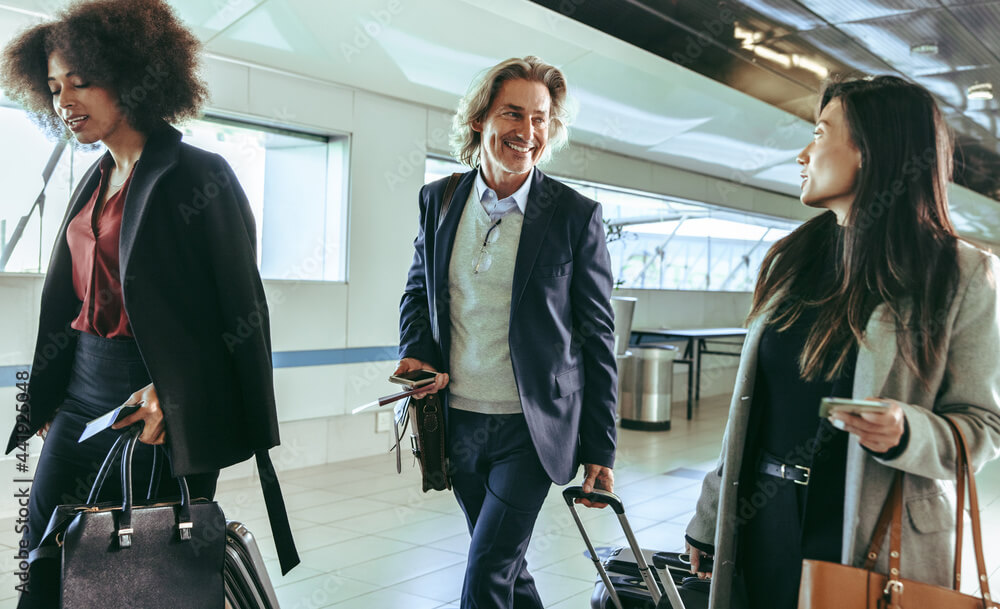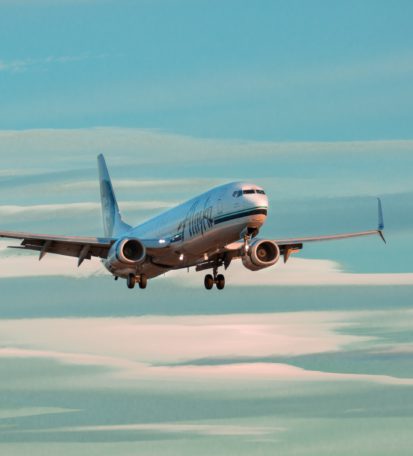Uncategorized
10 Important Facts to Consider for Business Travelling

Business travel can be both exciting and daunting, making it crucial for travellers to prepare thoroughly. Understanding the nuances of travel etiquette, packing essentials, and health considerations can significantly enhance the overall experience.
From navigating cultural differences to ensuring all necessary documents are in order, professionals can maximise productivity while minimising stress during their trips.
Each journey presents unique opportunities for networking and relationship building, which can lead to future partnerships or collaborations.
Thus, having a strategic approach to planning logistics and maintaining work-life balance is vital for a successful business trip. Knowing how to communicate effectively in different settings can further enrich these interactions and foster positive impressions.
For those ready to embark on their next work-related adventure, being informed about key aspects can transform any trip into a productive and rewarding experience.
Key Takeaways
- Cultural etiquette plays a key role in international business interactions.
- Proper planning and documentation prevent unnecessary complications during travel.
- Balancing work and personal time is essential for sustaining well-being while travelling.
1. Understanding Cultural Etiquette
Cultural etiquette plays a crucial role in business travel. Recognising local customs and behaviours can lead to successful interactions, enhancing professional relationships and avoiding misunderstandings.
- Local Customs and Traditions
Before embarking on a business trip, one should research the specific customs and traditions of the destination country. Local practices may include greetings, gift-giving, and dining etiquette.
For instance, in Japan, bowing is a common greeting. In contrast, countries in the Middle East may prefer a firm handshake. Understanding these norms prevents unintentional disrespect.
Gift-giving, where appropriate, also varies significantly. In some cultures, presenting a gift should be done with both hands, while in others, it may be customary to decline a gift initially before accepting it.
Familiarity with local festivals or public holidays can also influence business schedules. Respecting these traditions can create a positive rapport with local colleagues.
- Business Etiquette Abroad
Business etiquette can differ markedly from one country to another. It is essential for travellers to understand appropriate professional conduct in their host country.
In many Asian cultures, hierarchy is significant. Hence, addressing the most senior person first in meetings is recommended. Conversely, in Scandinavian countries, a more egalitarian approach is prevalent, where everyone is encouraged to participate equally.
Communication styles also vary. In some cultures, direct communication is valued, while in others, a more indirect approach is preferred. For example, Western countries often favour straightforwardness, whereas Asian cultures might prioritise politeness and subtlety.
Dress codes can also differ significantly. Formal attire is expected in some regions, while others may allow for more relaxed garments. Researching these expectations in advance can help ensure that one presents themselves appropriately.
2. Essential Travel Documentation
Proper travel documentation is crucial for any business trip. Ensuring compliance with visa requirements and maintaining passport validity can prevent unnecessary complications during travel.
- Visa Requirements
Visa requirements vary significantly based on the destination and the traveler’s nationality. Before planning an international trip, it is essential to research the specific visa needed for that country. Some nations offer visa exemptions or on-arrival visas, while others require applications well in advance.
It is advisable to prepare the necessary documents, which may include an invitation letter from a host company, proof of accommodation, and travel itineraries.
Failing to obtain the correct visa can result in entry denial, which can disrupt business plans. Keeping abreast of changes in visa policies is also important, as countries often adjust their regulations.
- Passport Validity
Passport validity is another critical factor to consider for seamless travel. Most countries require that a passport be valid for at least six months beyond the intended entry date. This rule is especially important for international business travel, as it can influence visa issuance and entry permissions.
Before travelling, it is wise to check the passport expiration date and renew it if necessary. Additionally, carrying multiple photocopies of the passport can be beneficial. It ensures that a backup is readily available in case of loss or theft.
Understanding these specifics helps in maintaining smooth travel plans and avoiding bureaucratic delays.
3. Health and Safety Considerations
Health and safety are paramount when considering business travel. Proper preparation can mitigate health risks and ensure access to necessary medical care while abroad.
- Vaccinations and Health Risks
Before travelling, it’s crucial to research required vaccinations based on the destination. Certain countries have specific health risks, such as malaria or yellow fever. Travellers should consult healthcare providers at least six weeks in advance to secure vaccinations and discuss personal health concerns.
Additionally, staying updated on regional health alerts can inform about outbreaks or environmental hazards. Business travellers can protect themselves by adopting preventive measures, such as using mosquito repellent and avoiding uncooked foods in regions with foodborne illnesses.
- Health Insurance and Medical Care
Health insurance coverage is essential for business travellers. Ensuring the policy includes international coverage can prevent excessive out-of-pocket expenses. Employers should verify if their standard health plan extends to international locations or if additional travel insurance is necessary.
When abroad, knowing where to access medical care is vital. Travellers should research nearby hospitals, clinics, and pharmacies at their destination. Keeping emergency contact details and local health service information readily accessible can facilitate prompt medical assistance if needed.
4. Planning and Logistics
Effective planning and logistics are crucial for a successful business trip. Corporate travel management companies ensures that everything runs smoothly and that time is optimized during travel. The key aspects include meticulous itinerary scheduling and selecting suitable accommodation and transportation.
- Itinerary Scheduling
Creating a detailed itinerary is essential for maximising productivity during a business trip. It involves mapping out meetings, events, and travel times.
Key elements to consider:
- Prioritise Meetings: List meetings in order of importance.
- Estimate Travel Times: Account for traffic and potential delays.
- Flexibility: Include buffer times between appointments to accommodate unexpected changes.
Using digital tools can streamline this process. Many apps offer automated scheduling and reminders, making it easier to stay organised.
- Accommodation and Transportation
Choosing the right accommodation and transportation significantly affects the overall experience of a business trip.
Accommodation Tips:
- Proximity to Meetings: Select hotels close to meeting locations to reduce travel time.
- Amenities: Look for features like Wi-Fi, business centres, and flexible check-in times.
Transportation Considerations:
- Types of Transport: Evaluate options such as rental cars, taxis, or public transport based on convenience and cost.
- Pre-booking: Secure arrangements in advance to ensure availability and often better rates.
By paying attention to these logistic details, business travellers can focus on their objectives without unnecessary distractions.
5. Communication Strategies
Effective communication strategies are essential for successful business travel. They encompass understanding potential language barriers and utilising connectivity and technology appropriately. By addressing these areas, travellers can enhance interactions and ensure smoother operations while abroad.
- Language Barriers
In international business settings, language barriers can hinder clear communication. It is essential for travellers to research the primary language of their destination. Familiarity with key phrases can ease interactions and foster goodwill.
Employing translation apps or devices can also help overcome these barriers. These tools provide instant translations, enabling more effective conversations.
Additionally, businesses should consider providing language training for employees who frequently engage with clients or suppliers in different countries.
Understanding cultural nuances is equally important. Gestures, expressions, and even the context of words can vary significantly across cultures. Taking the time to learn these aspects can greatly improve communication success.
- Connectivity and Technology Use
Connectivity is vital for seamless communication while travelling. Ensuring access to reliable internet is a priority, as it allows for quick information sharing and real-time collaboration. Travellers should consider portable Wi-Fi devices or local SIM cards to maintain connectivity.
Utilising technology effectively can enhance communication. Tools like video conferencing platforms allow for face-to-face interactions, bridging gaps created by distance. Additionally, cloud-based document sharing ensures that team members have access to vital information, regardless of location.
It’s also important for businesses to be aware of security measures when using technology abroad. Implementing robust cybersecurity protocols safeguards sensitive information from potential threats. Being proactive in both connectivity and technology use significantly contributes to effective communication during business travel.
6. Budgeting for Business Travel
Effective budgeting is crucial for managing the costs associated with business travel. It involves careful planning to ensure that expenditures align with company objectives while maximizing returns on investment.
- Expense Management
Expense management is a key component of budgeting for business travel. Organisations must categorise expenses into specific areas such as transportation, accommodation, meals, and incidentals.
Creating a detailed travel budget template can aid in tracking these outgoings. This template should include:
- Itemized Expenses: Breakdown each category for clarity.
- Estimated Costs: Use historical data to forecast anticipated costs.
- Approval Process: Establish guidelines for pre-travel expense approvals.
Tracking actual expenses against the budget can provide insights into spending patterns. This helps identify areas for potential savings and prevents overspending.
- Cost-Saving Practices
Implementing cost-saving practices can significantly enhance a company’s travel budget. Businesses should explore options such as group bookings and corporate discounts on flights and hotels.
Utilising technology plays a vital role here:
- Travel Management Software: Tools can streamline the booking process and offer the best rates.
- Expense Reporting Tools: Simplified reporting ensures timely reimbursement and better oversight.
Employing these practices may also include encouraging employees to book in advance and choose economical travel options. By fostering a culture of cost-effectiveness, organisations can achieve substantial savings on business travel expenses.
7. Packing Essentials
Packing effectively is crucial for business travellers. It requires careful consideration of both attire and essential electronic devices to ensure readiness for meetings and events while on the go.
- Travel Gear and Attire
When selecting travel gifts and gear, comfort and professionalism are key. A well-fitted business suit is essential for meetings, while adding layers like blazers or cardigans allows for adaptability to varying temperatures.
Packing List:
- Business Suits: At least two to rotate.
- Dress Shirts/Blouses: Ensure they are wrinkle-resistant.
- Comfortable Shoes: Opt for classic styles that can transition from meetings to casual outings.
- Casual Attire: Include comfortable trousers and a few smart-casual tops.
- Accessories: Don’t forget ties, belts, and appropriate jewellery.
Choosing versatile pieces helps to maximise outfit combinations while minimising luggage weight. A quality travel bag or suitcase that complies with airline regulations enhances efficiency and organisation during transit.
- Electronic Devices and Chargers
Business travel relies heavily on electronic devices. A laptop is a must-have for productivity. A tablet can serve dual purposes—entertainment and work on the go.
Essential Electronics:
- Laptop: Ensure it’s fully charged and updated.
- Tablet or Smartphone: As backup for email and applications.
- Chargers and Adapters: Bring chargers for all devices. Universal travel adapters are wise for international trips.
- Portable Battery Pack: Useful for keeping devices charged during long journeys.
Staying connected requires planning, where organisation is paramount. Keeping devices in a separate compartment of the luggage can facilitate easy access at security checkpoints.
8. Risk Management
Businesses must prepare for various risks associated with travel, especially in foreign environments. Understanding the political and economic landscape of the destination and having solid emergency preparedness measures is crucial for ensuring safe and effective business travel.
- Political and Economic Stability
Before travelling, evaluating the political climate and economic stability of the destination is essential. A volatile political situation can pose significant risks to business travellers. Factors like government stability, regional conflicts, and public sentiment should all be assessed.
Companies can use the following methods to gather relevant information:
- Government Travel Advisories: Checking official advisories from government sources.
- Local News Outlets: Monitoring the political landscape via local media.
- Risk Assessment Services: Engaging firms that specialise in travel risk assessments.
Understanding these factors enables better decision-making, enabling a smoother travel experience while minimising potential disruptions.
- Emergency Preparedness
Developing an effective emergency preparedness risk management vital for business travellers. This includes having protocols in place for various potential scenarios, such as natural disasters, medical emergencies, or political unrest.
Some key components of emergency preparedness include:
- Communication Plan: Establish clear lines of communication for travellers to check in regularly.
- Emergency Contacts: Compile a list of local emergency numbers and contacts for embassies or consulates.
- Travel Insurance: Ensuring all travellers are covered by comprehensive insurance policies that include evacuation and medical coverage.
Having these plans ensures that businesses can respond quickly and efficiently, safeguarding the wellbeing of all employees while travelling.
9. Networking and Relationship Building
Networking is a critical aspect of business travel, enabling professionals to foster valuable relationships and expand their influence. Developing connections in new locations not only opens doors to opportunities but also enriches one’s understanding of diverse markets.
- Making Local Contacts
Establishing local contacts is vital for business travellers. They should approach networking not as a transactional activity but as a chance to build genuine relationships.
- Attend Industry Events: Participating in conferences and trade shows can provide access to key players in the local market.
- Utilise Social Media: Platforms like LinkedIn are effective for connecting with professionals in the area before and during the trip.
- Engage In Casual Settings: Informal gatherings, such as networking dinners or local meetups, can create a more relaxed atmosphere for meaningful conversations.
Taking these steps ensures that connections formed are authentic and grounded in mutual interests.
- Maintaining Business Relationships
Once connections are established, maintaining them is essential for long-term success.
- Follow-Up Communication: Sending a personalised email or message shortly after the initial meeting reinforces the relationship.
- Regular Check-Ins: Scheduling periodic updates or casual catch-ups can keep the relationship active.
- Share Relevant Insights: Offering valuable information or resources demonstrates commitment to the relationship and mutual growth.
Maintaining connections through these practices contributes to stronger professional networks, facilitating future collaborations and opportunities.
10. Work-Life Balance during Travel
Maintaining a healthy work-life balance during travel is essential for productivity and well-being. Effective time management and stress reduction techniques can help business travellers manage their commitments better.
- Time Management
Business travellers often face tight schedules that can lead to burnout. Prioritising tasks is crucial. Utilising tools such as digital calendars can streamline scheduling. Setting clear objectives for each day helps in maintaining focus on essential tasks.
Employing the 2-Minute Rule can further enhance productivity. If a task takes less than two minutes to complete, it should be done immediately. Furthermore, utilising travel time effectively—for instance, replying to emails or planning meetings—helps maximise productivity. A well-planned agenda allows for breaks that can rejuvenate one’s energy and focus.
- Stress Reduction Techniques
Stress can accumulate quickly when travelling for work, so implementing stress reduction techniques is essential. Mindfulness and deep-breathing exercises can help calm the mind. Taking short breaks to stretch and walk can also reduce tension and improve circulation.
Incorporating physical activity, even a quick workout, into the daily routine can enhance mood and energy levels. Moreover, maintaining social connections through quick catch-ups with colleagues or friends can provide emotional support. Engaging in hobbies or leisure activities during downtime allows for relaxation and helps restore balance amidst a hectic travel schedule.
FAQs
What essential amenities should be provided to business travellers?
Business travellers often require specific amenities to ensure a productive trip. Access to high-speed internet, comfortable workspaces, and quiet areas for meetings is crucial.
Additionally, hotels should offer business centres with printing and copying services. Convenience in terms of transport, like shuttle services, also plays a significant role in enhancing the travel experience.
What strategies can optimise the efficiency of business travel?
Optimising business travel efficiency often involves careful planning and resource utilisation. Creating a detailed itinerary can help minimise downtime and ensure that all meetings are scheduled efficiently.
Using travel management tools can also streamline booking processes. This allows for better tracking of expenses and compliance with company policies.
In what ways does business travel contribute to company growth?
Business travel is instrumental in fostering relationships and opening new opportunities. Face-to-face meetings can lead to stronger partnerships and better collaboration, ultimately driving growth.
Moreover, exposure to new markets during travel can inspire innovative ideas and strategies. This exposure is key to staying competitive in a global landscape.
How does cultural understanding impact international business travel?
Cultural understanding is vital in international business travel. Being aware of cultural norms and practices can prevent misunderstandings and foster positive interactions.
This knowledge enhances negotiation processes and builds trust. A culturally sensitive approach can significantly improve the chances of successful business outcomes.
What are the main security concerns for those frequently travelling for business?
Security concerns for business travellers include theft, data breaches, and personal safety. It is essential for companies to provide guidelines for safeguarding sensitive information while abroad.
Additionally, ensuring that travellers are aware of local laws and customs can mitigate risks. Regular updates regarding travel alerts and security measures are also important.
How can sustainability be integrated into business travel practices?
Integrating sustainability into business travel practices involves making conscious choices. Opting for eco-friendly transportation options, such as trains over flights, can reduce carbon footprints.
Companies can also encourage digital documents to limit paper waste. Furthermore, selecting hotels that prioritise sustainability can contribute to more responsible travel practices.




